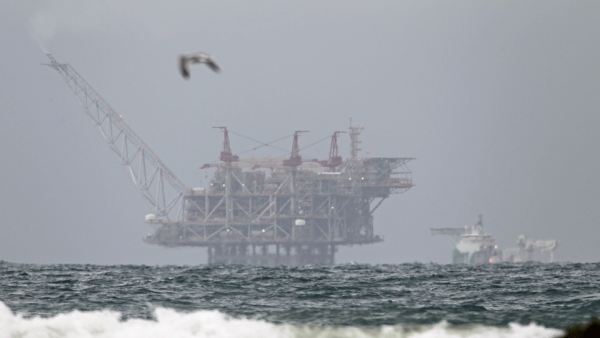Although the deal will ease Jordan’s budget deficit, it is expected to face political opposition in the kingdom despite a peace treaty with Israel.
The supplies, from Israel’s largest offshore natural gas field Leviathan, began for a 3-month test period outlined in a $10 billion deal Jordan’s National Electricity Company struck with Noble Energy in 2016, the state-owned power utility company said in a statement.
Under the agreement, the US-Israeli consortium will supply Jordan with gas for 15 years. The deal has faced opposition in Jordan, where many view Israel as an enemy despite a peace treaty between the kingdom and the Jewish state. Activists and parliamentarians have lobbied to scrap the purchase.
“It’s a black day in the history of Jordan and a crime against the nation and a national catastrophe that makes our sovereignty hostage and the energy sector in the hands of the Zionist occupation,” said the Islamic Action Front, a Muslim-Brotherhood affiliated opposition party.
A pipeline that goes to northern Jordan distributes gas to the country’s power plants for electricity generation.
The Jordanian government said that securing stable energy prices for the next decade can achieve savings of at least $500 million annually and help reduce a chronic budget deficit. Jordan imports about 95% of its energy needs with demand for electricity that rises 6-7% annually.
Jordan, which has a peace treaty with Israel, pushed through the deal despite opposition by politicians and many deputies in parliament who said it makes the kingdom dependent on its neighbour for energy.
The government in Amman has kept quiet over the deal in the face of public opinion and a vocal parliamentary opposition that demands the agreement be cancelled.
Authorities said this is an agreement between companies rather than governments and denies that Washington pressured Amman not to give in to public pressure.
Activists said they plan protests after several were staged in recent years as part of a movement that opposes attempts to normalise ties with Israel.
The amount of gas extracted from Leviathan is expected to reach 60 billion cubic metres (bcm) over 15 years. The nearby Tamar field will export 25.3 bcm in the same period. The value of the exports is estimated at $19.5 billion.
Besides bringing energy independence, Israel hopes its gas reserves will enable it to strengthen strategic ties in the region and help forge new ones, with an eye on the European market.
The discovery of Leviathan in 2010 helped turn Israel into a potential energy exporter. The Leviathan partners have signed multibillion-dollar export deals with Egypt to begin importing Israeli gas this month.
Delek Drilling and Noble Energy struck a $15 billion, 10-year deal last year with Egypt’s Dolphinus to supply 64 billion cubic metres.
Israel’s Leviathan field started pumping gas December 31 in what the operating consortium called “a historic turning point in the history of the Israeli economy.” A statement from Israeli partners Noble, Delek and Ratio said: “For the first time in its history, Israel is to become a significant natural gas exporter.”
It would be the first time Cairo, which in 1979 became the first Arab country to sign a peace accord with Israel, imported gas from its neighbour although energy cooperation with Israel has been controversial in Egypt.
Israel had bought gas from Egypt but land sections of a gas pipeline were targeted by jihadists in Sinai in 2011 and 2012.








